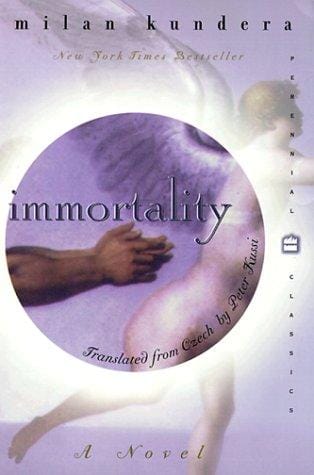The Enduring Power of “The Autobiography of Malcolm X”
Discover the narrative, themes, and legacy of The Autobiography of Malcolm X in this concise 800-word guide, highlighting why the memoir still resonates today.

Introduction
When The Autobiography of Malcolm X first hit bookstores in 1965, few could have predicted the explosive influence it would wield over readers, activists, and scholars for generations to come. The life story of Malcolm Little—later El-Hajj Malik El-Shabazz—traces a journey from poverty and criminality to spiritual awakening and uncompromising political advocacy. The result is a memoir that still vibrates with urgency, honesty, and intellectual rigor nearly six decades later.
Brief Synopsis of the Memoir
The book unfolds chronologically, opening with Malcolm’s tumultuous childhood in Omaha, Milwaukee, and Lansing, where white supremacist terror shattered his family and drove him into foster care. His adolescence in Boston and Harlem, steeped in hustling, drugs, and petty crime, lands him in prison—a pivotal setting where reading, debate, and self-reflection plant the seeds of transformation. After converting to the Nation of Islam, he emerges as its most electrifying minister, famously indicting America for its racial sins.
The narrative crescendos with Malcolm’s break from the Nation in 1964, a pilgrimage to Mecca, and his embrace of Sunni Islam’s universalist teachings. Global travels reorient his perspective from Black nationalism toward an international human-rights framework. Tragically, his assassination in 1965 cuts the story short, yet the memoir’s epilogue, penned by collaborator Alex Haley, testifies to Malcolm’s enduring vision.
The Unique Partnership of Malcolm X and Alex Haley
Alex Haley, best known for writing Roots, spent nearly two years interviewing Malcolm in coffee shops, hotels, and private residences. Their sessions blended tape-recorded conversations with handwritten edits in hotel-room galleys, allowing Malcolm to refine his ideas until the very end. Haley’s journalistic discipline ensured factual clarity, while Malcolm’s voice remained raw and unfiltered. This collaboration produced a text that is simultaneously literary, historical, and deeply personal—a living conversation between two Black intellectuals navigating mid-century America.
Key Themes
Quest for Identity
Malcolm’s narrative is, above all, a prolonged search for self-definition. From rejecting the imposed surname “Little” to adopting an “X” as a placeholder for stolen ancestral identities, he insists on naming himself. Readers witness a man who repeatedly sheds old selves—Detroit Red, Minister Malcolm, El-Hajj Malik—each reinvention amplifying the previous one rather than erasing it. The memoir invites audiences to interrogate how family, community, and oppression shape the sense of who we are.
Religion as Catalyst
Faith operates as a motor for Malcolm’s metamorphoses. The strict moral code of the Nation of Islam rescues him from prison nihilism, while the egalitarian spirit of mainstream Islam broadens his political horizon. His shifting theology underscores a broader point: spiritual practice can both narrow and expand political imagination, depending on how believers interpret scripture and community.
Understanding Systemic Racism
Long before the term “systemic racism” entered academic jargon, Malcolm diagnosed how institutions—from welfare agencies to the criminal-justice system—conspire to marginalize Black Americans. His condemnation is not limited to interpersonal prejudice; it targets structural hierarchies that produce unequal housing, policing, and education. The memoir therefore remains a primer for anyone seeking to understand how entrenched power reproduces inequality.
Education and Transformation
Although Malcolm never attended college, the prison library became his university. Copying the entire dictionary, reading philosophers, and debating fellow inmates, he illustrates that education is not merely credentialed but lived. His intellectual curiosity models a democratized learning process, challenging readers to see knowledge as a tool for liberation rather than social status.
Historical Context
Published at the height of the civil-rights movement, the book captures a fracturing political landscape. While Dr. Martin Luther King Jr. championed nonviolence, Malcolm represented Black America’s mounting impatience with incremental reform. His critiques of colonialism also presaged the global decolonization wave sweeping Africa and Asia. Understanding this context enhances appreciation for why his ideas resonated so powerfully among both urban youth in the United States and emerging nations abroad.
Impact and Legacy
The Autobiography quickly became a foundational text for the Black Panthers, student activists, and later, the hip-hop generation. Its rhetorical precision and searing critiques influenced artists from Public Enemy to Lauryn Hill, as well as scholars in fields such as African-American studies and postcolonial theory. Academic citations, popular culture references, and continuous reprints testify to its status as a canonical work that bridges scholarship and grassroots activism.
Why the Book Still Matters
Fifty-plus years after its publication, Malcolm’s story echoes contemporary debates on policing, mass incarceration, and Black political autonomy. His willingness to revise beliefs in light of new evidence offers a model for intellectual humility—rare in today’s hyper-polarized public sphere. For millennials and Gen-Z readers attuned to identity politics and intersectionality, the memoir offers both a historical foundation and a challenge to craft equally bold visions of liberation.
Conclusion
Reading The Autobiography of Malcolm X is not merely an encounter with one man’s past; it is an invitation to grapple with America’s unfinished business of racial justice. Through vivid storytelling and fearless self-interrogation, Malcolm leaves readers with a blueprint for personal growth tied inextricably to collective struggle. Whether you approach the memoir as literature, history, or political treatise, its message remains unmistakable: transformation is possible, but it demands courage, clarity, and action.



